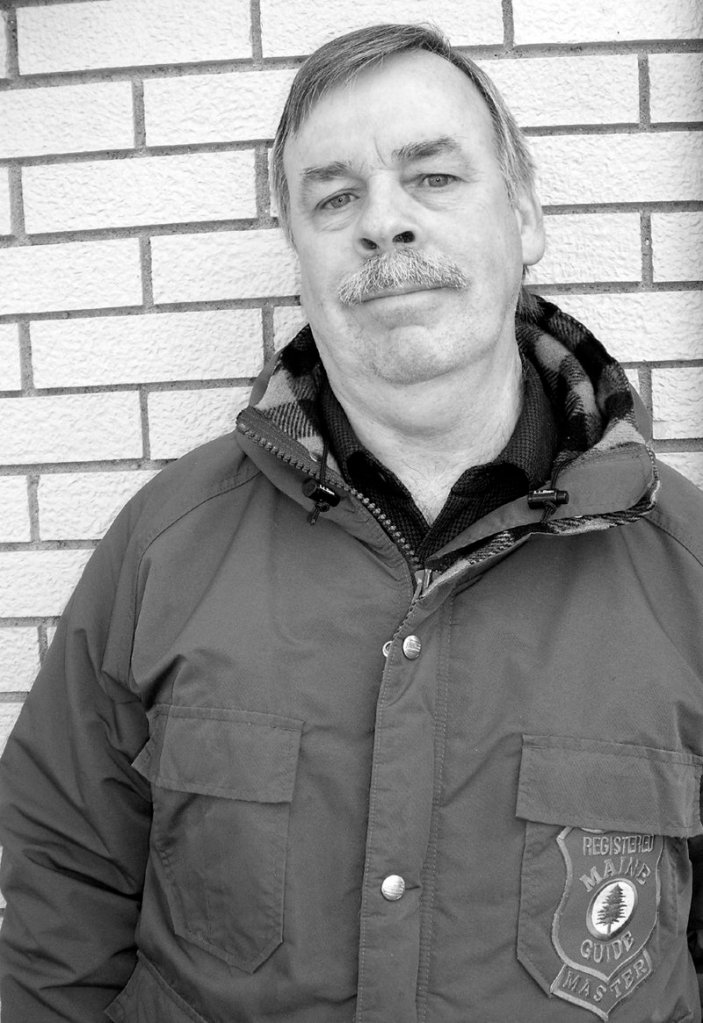L.L. Bean — the man, the boot, the company and the store — is a Maine legend.
James L. Witherell of Lewiston takes a fresh look at Bean in his new biography, “L.L. Bean: The Man and His Company,” published by Tilbury House Publishers in Gardiner. The book comes up just before the 100th anniversary of the company, which was founded in 1912.
Although an unauthorized biography, it’s a friendly one. Witherell asked for cooperation from Bean officials, which they refused, so he mined material that has been printed about L.L. Bean and conducted many interviews. The result is a lot of intriguing information.
Witherell includes information about Bean growing up in Bethel and Paris, being orphaned and, after a fairly lackluster career, creating the Maine Hunting Shoe at age 40 — and, subsequently, the L.L. Bean business.
The book is a hefty tome at 555 pages. Witherell wished he could have cut it by 100 pages, but said, “Readers are getting a lot of information for their $20.”
Q: Is this book authorized, and did company officials cooperate with you?
A: No it isn’t, and no they didn’t. I asked, and the reason why they didn’t is that it’s just their policy. I expected that.
Q: So you used published materials and mined other records?
A: Mostly. And I interviewed a lot of people. Of course, the early ones are all dead. But I have joked that if everyone I mention buys a copy of the book, it will do well.
Of course, Bean wrote his autobiography in 1960, and I have a second edition of that, and the company scrapbook printed on the 75th anniversary of the company was a gold mine of information and helped to fill in dates and other information.
I have probably two bookshelves of articles and books about L.L. Bean, including one by Carlene Griffin, who was with the company 70 years and just recently retired in the past couple of years.
Q: From the part about buying a Thule roof rack at the company employees’ store, I can assume you worked for Bean.
A: Briefly, as a seasonal employee for a couple of years, like a lot of people. In the early ’90s before Christmas, I worked in packing and then after Christmas in returns and the following season up here in Lewiston with the call center, and then got a job after the holidays down in Portland at the Read Street building putting bicycles together.
Q: What did you find out that surprised you most?
A: The one thing that really surprised me was when (former company president) Leon Gorman’s book (“L.L. Bean: The Making of an American Icon”) came out almost five years ago. I was surprised at how honest he was about how he dealt with the problem of trying to keep the company’s image and traditions while continuing to grow it, and about his relationship with Bill End before he left the company. Previously, Gorman had been somewhat reticent to go into a lot of detail about that.
Q: What surprised me was how close to being in trouble the company was before L.L. Bean died.
A: As he got older, it was more of a problem. As he aged, he did a lot less hunting and a lot more fishing, because it was less strenuous, and when he got too old to do even much fishing, he sort of lost interest because he could no longer present himself as the complete outdoor man.
Q: What do you think is key to the company’s success, and do you think they are on good footing now?
A: They are definitely on good footing now. They had a good year last year, as shown by their sales figures. It has always been the heritage and the reputation of the company for its 100-percent guarantee, and for a long time — and now it is back again — the free shipping. Being in Maine is a big plus for the company, because that means honesty and integrity and hard work for a lot of people.
Q: And they had some good luck too, with such things as “The Official Preppy Handbook,” didn’t they?
A: Fashion is cycled, and every once in a while, fashion will come around to something that Bean happened to be selling. The company sales grew 40 percent that year, one of those flash-in-the-pan things. Leon Gorman didn’t like the preppy thing, even in hindsight, saying, “That is not what we stand for.” His comment was that we always sold the steak, but now we have to sell the sizzle and the steak. But he knew that was not something they could survive on in the long run.
Q: What are you working on now?
A: I am not sure how far it is going to go, but it seems like I like 100th anniversaries, and the 100th anniversary of Edmund Muskie’s birth is coming up in a few years. I am halfway through a bunch of files on him. If a publisher comes up with a better idea and says, “Why don’t you do this,” then I’ll do that. There doesn’t seem to be a lot of excitement from anyone about Ed Muskie right now.
Staff Writer Tom Atwell can be contacted at 791-6362 or at:
tatwell@pressherald.com
Send questions/comments to the editors.



